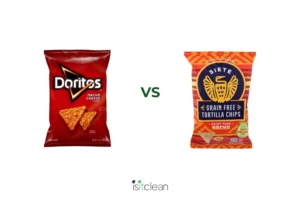
Acesulfame potassium is a zero-calorie sweetener that is added to many sugar-free…



Polyglycerol polyricinoleate (PGPR) is a synthetic emulsifier widely used in the food industry to enhance the texture and consistency of various food products, particularly in chocolate and confectionery items. It is produced through the reaction between polyglycerol and polyricinoleic acid, derived from castor oil. Incorporating PGPR into food products helps prevent ingredient separation, maintain a smooth texture, and reduce the viscosity of chocolate.

Polyglycerol polyricinoleate is a synthetically produced substance that is not naturally occurring in nature and is used in highly processed foods. While the majority of research suggests no negative effect of PGPR on organ health or genotoxicity in humans or animals, one study in mice determined that PGPR could aggravate colon inflammation and increase the percentage of weight from fat. This correlates with newer research suggesting that some emulsifiers may harm the health of the gut microbiota.
Health is like a bank account, certain ingredients make a deposit into your health bank, meaning they add to
your health. Certain ingredients withdraw from your health bank. We want health promoting ingredients in our diet. To keep things simple, we rate ingredients on a green, yellow, red scale:

It is naturally occurring in food and has no harmful effects on the body. It is real food. It is health promoting.

It goes into one or more of the below categories

It is known to have a harmful effect on the body (ex. All food colorings, Natural Flavors, MSG, Potassium bromate, aspartame, artificial flavors)



The Food Showdown: Popcorners flavors
Ingredient Rating: Canola oil – is it bad for you?
Clean Consuming: Nourishment for your

We have accomplished so much in just 1 year since our launch in March of 2023! We now have 10,000

The Nacho Chip Food Showdown, is Tapioca Starch safe in food? and a must-see documentary on America’s food system.
Stay in the know with the latest ratings, articles, and our newsletter, The Dirt.